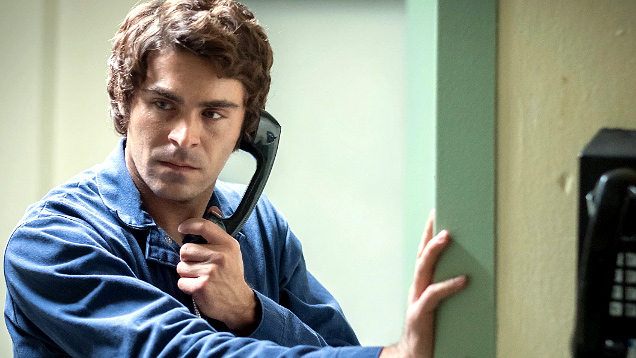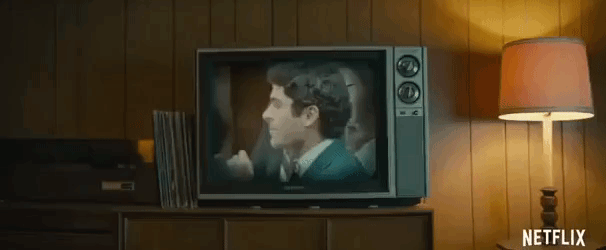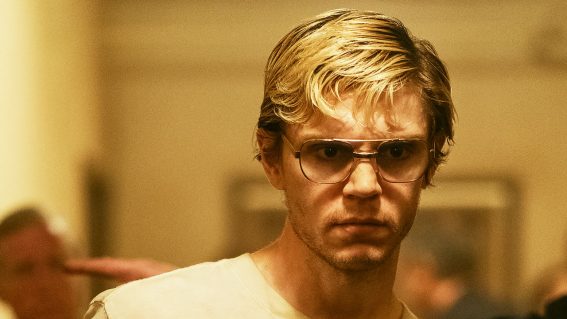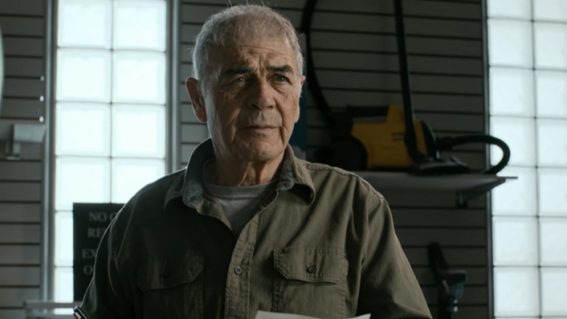The Ted Bundy biopic Extremely Wicked, Shockingly Evil and Vile is empty and pointless

Zac Efron plays Ted Bundy in Netflix’s new biopic about the notorious serial killer. Some reviewers have praised Efron’s performance, but Luke Buckmaster isn’t convinced – and calls the film an eerily superficial exercise in missed opportunity.
It’s not everyday you see a Hollywood heartthrob hired to play a serial killer because they are good looking and clean-cut. We are more accustomed to seeing beautiful faces given grotesque makeovers, Charlize Theron for instance bunging on some scabs and a set of prosthetic teeth to play the feral Aileen Wuornos in 2003’s Monster. Zac Efron is a much more photogenic monster in Extremely Wicked, Shockingly Evil and Vile, his stunt casting justified given the character he plays, serial killer Ted Bundy, was a very handsome man in real-life.
What do we learn about Bundy that Joe Berlinger, the director of the film, didn’t tell us in the recent Netflix documentary series Conversations with a Killer: The Ted Bundy Tapes, which he also helmed? Nothing. Zero. Zilch. This a film of slick emptiness and missed opportunity, with a chilling habit of presenting the killer as he would have liked to be seen. Berlinger and the screenwriters (loosely adapting the book The Phantom Prince: My Life with Ted Bundy) seem determined to avoid answering any of the questions that might have made an intellectually interesting experience. Such as: why were TV cameras allowed in the courtroom of Bundy’s trial, which became the first to be nationally televised in the United States?
When the killer’s girlfriend Carole (Kaya Scodelario) fronts the press and speaks out against this, suggesting the carnivalization of the trial sets a dangerous precedent – “about getting the ratings (but) not getting the truth” – she makes a valid point. But that line is fed to her by Bundy himself, which undercuts its meaning, suggesting the audience cannot agree to this reasonable point without being on the side of the murderer. I found myself increasingly questioning Berlinger’s motives, pondering whether he intended to position himself as a go-to guy for Bundy productions – turning the terrible legacy of a serial killer into a kind of cottage industry, as he arguably did also with the interesting but problematic Paradise Lost trilogy, about the trials of the West Memphis Three.

Extremely Wicked opens with the protagonist in jail and long-time girlfriend Elizabeth Kloepfer (Lily Collins) coming to visit. The director alternates between a present day illustrated in steely colour tones, and the evening they first met, presented, it seems, with an ironic choice of lighting: warm, orangey, comforting. The nadir of the film is a cartoon moment when Bundy and Liz visit the pound and a vicious dog snarls at the killer, viscerally responding to his wickedness. Bundy maintains an icy glare that turns the pooch into a whimpering mess. This man so evil, you see, and his animalism so base, he can reduce vicious animals to moosh.
Berlinger doesn’t try to explain Bundy’s wickedness, which would have been perilous if not disastrous territory to tread. Nor does he recreate the scenes of his killings. Perhaps for the best, yet avoiding these things poses problems too. When we learn that Bundy sneaked into a sorority dorm and murdered several people, the information is dissociatively conveyed via a news bulletin – as if telegraphing the actions of a person from another story. For almost the entire running time we see no evidence that Bundy has done anything untoward, so the film doesn’t engender in the viewer a strong desire to see the hammer of justice come down.
Some of the reviews have been enthusiastic about Efron’s performance, describing it as “compulsively watchable” and other words to that effect. Not for me. Efron has no depth and no menace, and nothing about his brattish presence feels earned. Any kind of edginess we associate with him comes from the baggage of the role and not the portrayal itself.
The glossy high-end style of cinematographer Brandon Trost exacerbates the film’s eerie superficiality, making it look like a shampoo commercial. The most interesting aspect of Extremely Wicked, Shockingly Evil and Vile isn’t connected to the film itself but to the release of the trailer. When it launched social media users took umbrage at the casting of Efron, on the grounds that the pulchritudinous performer is too much of a dreamboat to play a serial killer. This mirrored the response from some circles to Bundy himself: of bewilderment at the possibility that a person who is beautiful on the outside could be so horrible within.
This leads to the film’s single interesting observation, which was also the most salient message in Conversations With a Killer: a complete rejection of that outdated, romantic, and plain untrue notion that “eyes are the window to the soul.” Eyes are not the windows to anything, and in reality there is rarely if ever a meaningful connection between a person’s physical appearance and the contents of their character. It’s as if the very raison d’être of this utterly inconsequential biopic is to say: evil can take the form of any person – even a hunk from High School Musical. Well hell, I could have told you that.
















